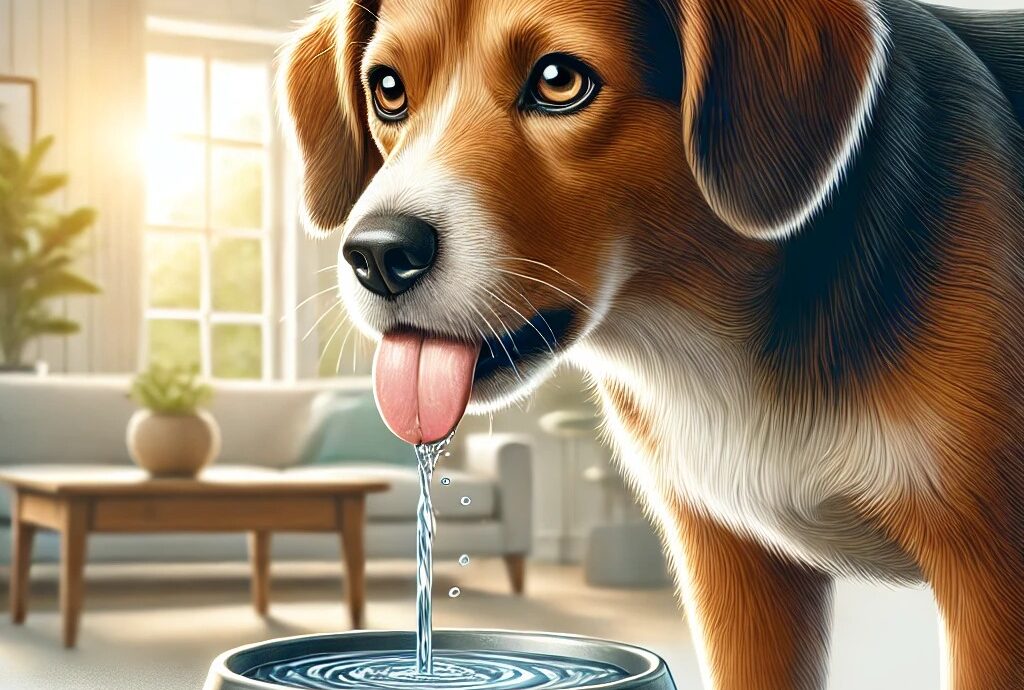- by dogtumor
- juillet 30, 2024
Hydration Matters: Why Water Intake is Crucial for Dogs Battling Cancer

When a dog is diagnosed with cancer, every aspect of their care becomes critical. Among the many factors that can influence their well-being and recovery, water intake is often overlooked. Ensuring proper hydration is crucial for dogs battling cancer. This article explores the importance of water intake, its impact on health, and practical tips for maintaining adequate hydration, providing valuable insights for pet owners and caregivers.
The Role of Hydration in Canine Health
Water is essential for all living beings, and dogs are no exception. It plays a vital role in various bodily functions, including:
- Digestion: Aids in breaking down food and absorbing nutrients.
- Circulation: Facilitates the transport of blood cells, oxygen, and nutrients.
- Temperature Regulation: Helps maintain body temperature through panting and sweat (via paws).
- Detoxification: Assists in flushing out toxins and waste products.
Why Hydration is Critical for Dogs with Cancer
Cancer and its treatments can significantly impact a dog’s hydration status. Here are key reasons why maintaining adequate water intake is crucial:
1. Counteracting Treatment Side Effects
Chemotherapy, radiation, and certain medications can cause side effects like vomiting, diarrhea, and increased urination, leading to dehydration. Ensuring sufficient water intake helps counteract these effects and supports overall health.
2. Supporting Kidney Function
The kidneys play a crucial role in filtering waste and toxins from the blood. Hydration supports kidney function, which can be compromised by cancer and its treatments. Adequate water intake helps prevent kidney damage and promotes effective detoxification.
3. Enhancing Appetite and Digestion
Cancer treatments can affect a dog’s appetite and digestive system. Proper hydration can stimulate appetite and aid digestion, ensuring your dog receives essential nutrients needed for strength and recovery.
4. Improving Energy Levels
Dehydration can lead to lethargy and weakness. Keeping your dog well-hydrated helps maintain their energy levels and overall vitality, making them more comfortable and active.
Signs of Dehydration in Dogs
Recognizing the signs of dehydration is essential for timely intervention. Common symptoms include:
- Dry Nose and Gums: A dry or sticky nose and gums can indicate dehydration.
- Sunken Eyes: Dehydrated dogs may have sunken or dull-looking eyes.
- Lethargy: Decreased energy levels and excessive sleeping.
- Loss of Skin Elasticity: When gently pulled, the skin takes longer to return to its normal position.
- Panting: Excessive panting not related to heat or exercise.
Practical Tips to Ensure Adequate Hydration
- Provide Fresh Water: Ensure your dog always has access to clean, fresh water. Change the water frequently to keep it appealing.
- Wet Food: Incorporate wet food into your dog’s diet to increase their water intake naturally.
- Broths and Soups: Offer low-sodium broths or homemade soups to encourage drinking.
- Hydration Supplements: Consider using pet-safe hydration supplements to enhance water intake.
- Monitor Intake: Keep track of your dog’s water consumption, especially during treatment periods.
- Accessible Water Bowls: Place multiple water bowls around the house to encourage frequent drinking.
- Flavor Enhancers: Add a splash of low-sodium chicken broth or tuna juice to the water to make it more enticing.
Case Study: Max’s Journey
Max, a 7-year-old Golden Retriever, was diagnosed with lymphoma. During his chemotherapy treatment, Max experienced significant side effects, including vomiting and diarrhea, which led to dehydration. His owner implemented a hydration plan that included offering wet food, flavored water, and hydration supplements. With careful monitoring and consistent hydration, Max’s energy levels improved, and he coped better with his treatment, highlighting the importance of adequate water intake.
Proper hydration is a cornerstone of care for dogs battling cancer. By ensuring your dog receives sufficient water, you can help mitigate treatment side effects, support vital organ functions, and improve their overall quality of life. Always consult with your veterinarian for personalized advice and to create a comprehensive hydration plan tailored to your dog’s needs.
Author: dogtumor
Articles similaires
En savoir plus sur Dogtumor
Subscribe to get the latest posts sent to your email.

